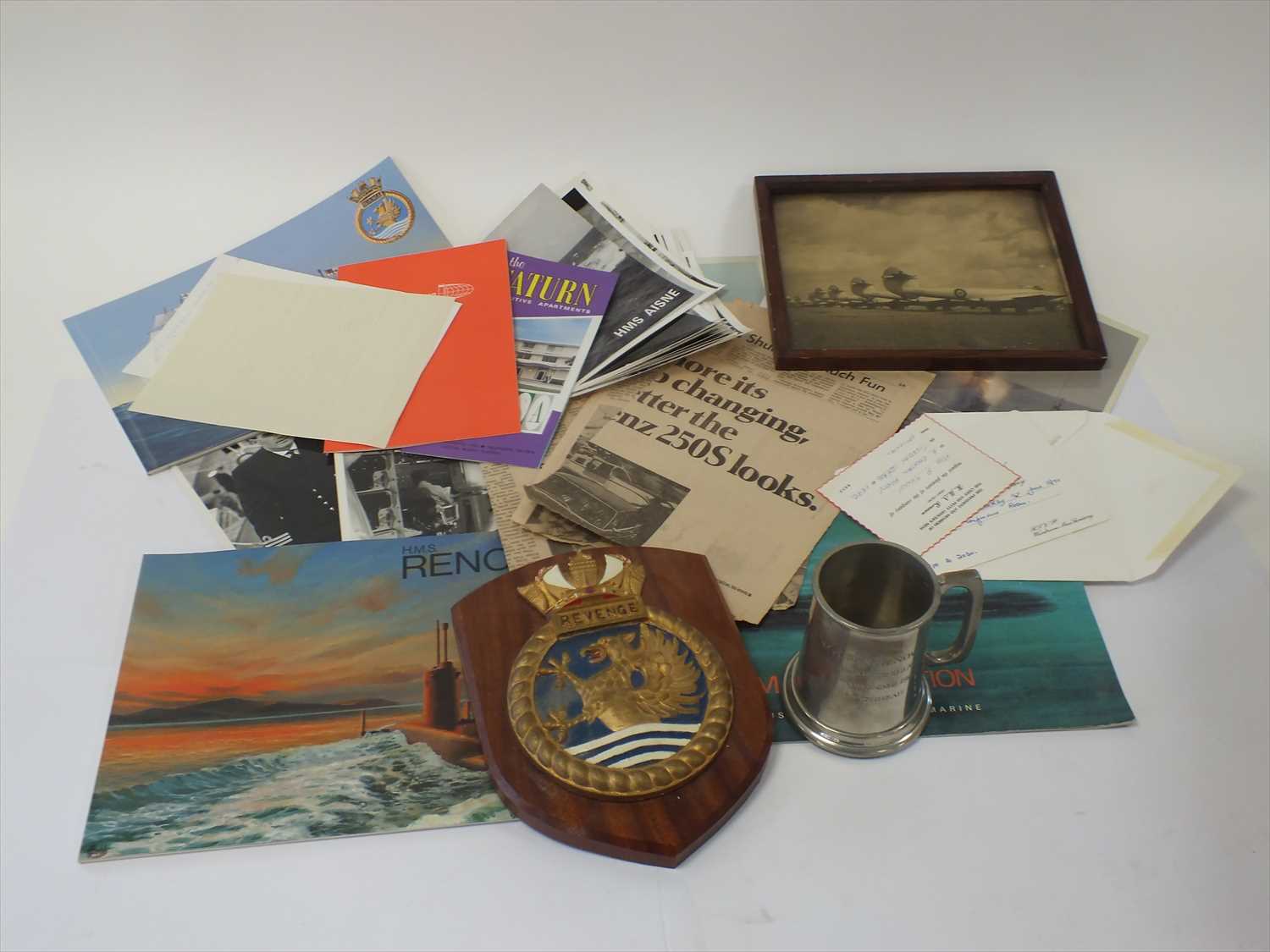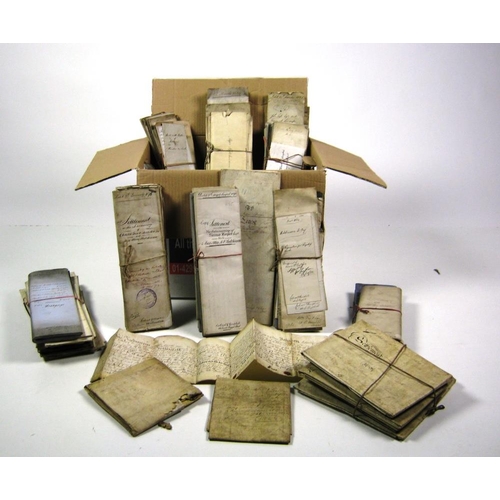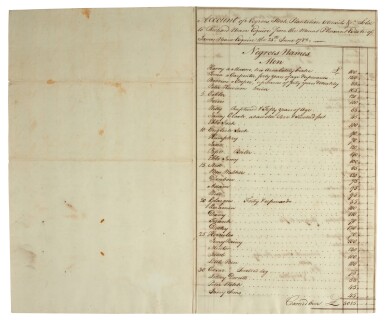An Important Archive Relating to Field Marshall Sir John French Fine illuminated parchment address “To Lieut. General Sir John D.P. French, K.C.B. We the Mayor, Aldermen and Burgesses of the Borough of Deal… desire to offer you a most cordial welcome on this occasion of your visiting Deal for the purpose of opening a Bazaar in connection with the Victoria College Hospital… Given under our Common Seal this Fifteenth day of April One thousand nine hundred and three.” 30x43cm plus the seal of the town hanging by green silk ribbon from the foot of the parchment (total depth 53cm). Some flaking to the gilt but still a bright and attractive piece, folded, otherwise near very good condition £200-300 Footnote Field Marshal Sir John Denton Pinkstone French, first Earl of Ypres, K.P., G.C.B., O.M., G.C.V.O., K.C.M.G. Sir John French’s meteoric early career foretold of greatness. He achieved the highest levels of command and his biographer described him as “a brave Victorian general… the most distinguished cavalry officer since Cromwell.” But, at the pinacle of his greatness he was found wanting. In 1914 French was head of the Army, a field marshal and Chief of the Imperial General Staff. On the declaration of war he was appointed commander-in-chief of the British Expeditionary Force. Times change, however, and the brilliant cavalry leader of the South African War was confronted with a hazy plan with which he had no intimate connection or knowledge. He had perforce to retreat in haste from Mons, his force divided and his French counterparts – in any case unwilling to co-operate as fully as would have been ideal – were almost as in the dark as he was. The year 1915 was dogged by ill-luck and misjudgement. Promised breakthroughs at Neuve Chapelle, Aubers Ridge, Festubert and Loos were ill-conceived and the superb soldiers of the B.E.F. were let down by their commander’s decisions (or indecision). Short of shells too, the Army could make no progress. After fourteen months in command of the B.E.F. French resigned on 4th December 1915. But let us return to the “brave Victorian general” and his youthful promise. He was born in 1852, the son of a naval commander, and was destined for the navy. He passed out of HMS Britannia as a midshipman in 1868 but resigned in 1870 and obtained a commission in the Suffolk Artillery Militia. Not until 1874 was he gazetted to the 8th Hussars (shortly afterwards transferred to the 19th Lancers). He climbed steadily up the professional ladder: served as adjutant of his regiment and was advanced to captain in 1880 and a majority in 1883. He commanded a detachment of the 19th Hussars with distinction in Egypt, 1884, and was rewarded with a brevet lieutenant-colonelcy. No stranger to the finer things in life, French enjoyed the privileges of his position, played polo and other games. His succession of mistresses almost led to the premature termination of his career. French commanded the 19th Hussars in India and in 1895 he became assistant-adjutant-general at the War Office. In this job he produced a new Cavalry Manual and by the eve of the Boer War he was commanding the 1st Cavalry Brigade at Aldershot. In South Africa French made a great name for himself leading the cavalry in Natal. In spite of difficult overall conditions and a wily foe, French ran rings around the Boer commandos and “virtually cleared Cape Colony of invaders” [DNB], forced the passage of the Modder River and – with two cavalry brigades in open order at the gallop – cleared the road to Kimberley and relieved the town. He swept all before him at Paardeberg, Poplar Grove and Driefontein. For this campaign he was made a substantive major-general and created K.C.B. The guerilla war that followed was decidely unheroic for anyone involved, but gradually a satisfactory conclusion was achieved and at the end of the war French was promoted lieutenant-general and created K.C.M.G. At home French was appointed to the Aldershot Command, promoted general and
An Important Archive Relating to Field Marshall Sir John French Fine illuminated parchment address “To Lieut. General Sir John D.P. French, K.C.B. We the Mayor, Aldermen and Burgesses of the Borough of Deal… desire to offer you a most cordial welcome on this occasion of your visiting Deal for the purpose of opening a Bazaar in connection with the Victoria College Hospital… Given under our Common Seal this Fifteenth day of April One thousand nine hundred and three.” 30x43cm plus the seal of the town hanging by green silk ribbon from the foot of the parchment (total depth 53cm). Some flaking to the gilt but still a bright and attractive piece, folded, otherwise near very good condition £200-300 Footnote Field Marshal Sir John Denton Pinkstone French, first Earl of Ypres, K.P., G.C.B., O.M., G.C.V.O., K.C.M.G. Sir John French’s meteoric early career foretold of greatness. He achieved the highest levels of command and his biographer described him as “a brave Victorian general… the most distinguished cavalry officer since Cromwell.” But, at the pinacle of his greatness he was found wanting. In 1914 French was head of the Army, a field marshal and Chief of the Imperial General Staff. On the declaration of war he was appointed commander-in-chief of the British Expeditionary Force. Times change, however, and the brilliant cavalry leader of the South African War was confronted with a hazy plan with which he had no intimate connection or knowledge. He had perforce to retreat in haste from Mons, his force divided and his French counterparts – in any case unwilling to co-operate as fully as would have been ideal – were almost as in the dark as he was. The year 1915 was dogged by ill-luck and misjudgement. Promised breakthroughs at Neuve Chapelle, Aubers Ridge, Festubert and Loos were ill-conceived and the superb soldiers of the B.E.F. were let down by their commander’s decisions (or indecision). Short of shells too, the Army could make no progress. After fourteen months in command of the B.E.F. French resigned on 4th December 1915. But let us return to the “brave Victorian general” and his youthful promise. He was born in 1852, the son of a naval commander, and was destined for the navy. He passed out of HMS Britannia as a midshipman in 1868 but resigned in 1870 and obtained a commission in the Suffolk Artillery Militia. Not until 1874 was he gazetted to the 8th Hussars (shortly afterwards transferred to the 19th Lancers). He climbed steadily up the professional ladder: served as adjutant of his regiment and was advanced to captain in 1880 and a majority in 1883. He commanded a detachment of the 19th Hussars with distinction in Egypt, 1884, and was rewarded with a brevet lieutenant-colonelcy. No stranger to the finer things in life, French enjoyed the privileges of his position, played polo and other games. His succession of mistresses almost led to the premature termination of his career. French commanded the 19th Hussars in India and in 1895 he became assistant-adjutant-general at the War Office. In this job he produced a new Cavalry Manual and by the eve of the Boer War he was commanding the 1st Cavalry Brigade at Aldershot. In South Africa French made a great name for himself leading the cavalry in Natal. In spite of difficult overall conditions and a wily foe, French ran rings around the Boer commandos and “virtually cleared Cape Colony of invaders” [DNB], forced the passage of the Modder River and – with two cavalry brigades in open order at the gallop – cleared the road to Kimberley and relieved the town. He swept all before him at Paardeberg, Poplar Grove and Driefontein. For this campaign he was made a substantive major-general and created K.C.B. The guerilla war that followed was decidely unheroic for anyone involved, but gradually a satisfactory conclusion was achieved and at the end of the war French was promoted lieutenant-general and created K.C.M.G. At home French was appointed to the Aldershot Command, promoted general and













Try LotSearch and its premium features for 7 days - without any costs!
Be notified automatically about new items in upcoming auctions.
Create an alert